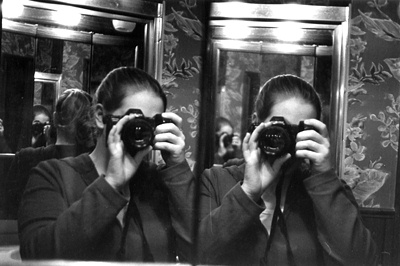All Nonfiction
- Bullying
- Books
- Academic
- Author Interviews
- Celebrity interviews
- College Articles
- College Essays
- Educator of the Year
- Heroes
- Interviews
- Memoir
- Personal Experience
- Sports
- Travel & Culture
All Opinions
- Bullying
- Current Events / Politics
- Discrimination
- Drugs / Alcohol / Smoking
- Entertainment / Celebrities
- Environment
- Love / Relationships
- Movies / Music / TV
- Pop Culture / Trends
- School / College
- Social Issues / Civics
- Spirituality / Religion
- Sports / Hobbies
All Hot Topics
- Bullying
- Community Service
- Environment
- Health
- Letters to the Editor
- Pride & Prejudice
- What Matters
- Back
Summer Guide
- Program Links
- Program Reviews
- Back
College Guide
- College Links
- College Reviews
- College Essays
- College Articles
- Back
Becoming a Better Writer through the Works of Others
“The dot that became a speck that became a blob that became a figure that became a boy” – John Boyne, the author of the historical fiction book The Boy in Striped Pyjamas. This quote tells the main idea for the story. It’s just at the turning point in the story for two boys, Bruno and Smole, because it is the very first hint of sight before they meet. This quote also metaphorically creates a simple process in the steps an author should take to write a piece of work.
A commentary featured over the film The Boy in Striped Pajamas, Mark Herman (the director) and John Boyne discussed the similarities and differences between the book and the film, talking about why they added in or took out details from history or the original story. The most obvious reason Herman tweaked with the original story was because he had to find a way to make it more appealing to a wider audience. He knew that books and films are two different things and what works in one won’t work in the other. In a book the reader uses their own information to infer what is happening, but in a movie the audience sees more of what the director intended. In some ways he could get a point across faster and in a better way, and in most of his changes to the story he did just that.
One of the most important changes from the book to the film was how Bruno gets to the fence. In the book, Bruno is ambling along next to the fence and a dry dull feeling is given, but in the movie Bruno is excited and having fun, soaring through the woods and the audience feels the sense of freedom Bruno has. Another big change to the movie was how Bruno discovered that Gretel is growing up. Bruno walked down into the cellar and found a huge pile of baby dolls; quite dramatic! Then, like in the book, he of course gets scared and rushes upstairs to find Gretel putting up Hitler posters. Another interesting added in scene was when Bruno was spying on the propaganda video his father was showing to his friends. This scene is perfect for the movie because it gives more characterization to Bruno, showing how naive he is, thinking Smole actually has it better than him.
While listening to these writers’ I learned about how to be a better writer and about getting my ideas down on paper. The most important lesson I learned was to start from a big picture then, narrow down to the fine details. From now on, before I write anything, I will take a step back and ask myself what I want to accomplish. Second, both said to cut things out and get to the point. “Less is more.” When I’m writing I’ll continue to revise my writings using STAR and try to cut out unimportant details getting to the point quicker. Another good tip I heard was to create good characterization at the beginning, then add on later. I plan to do this is by in the brainstorming stage, creating a list of characters and then the traits I want them to have in the story.
Seeing how these two writers told a story with an outcome that had the same effect showed me that there is more than one way to tell a story. Using just John Boyne’s quote, I can enhance my writing, starting with a broad picture (a dot) and then adding more and more details (a speck, a blob and a figure) to create a clearer picture (a boy).

Similar Articles
JOIN THE DISCUSSION
This article has 0 comments.
